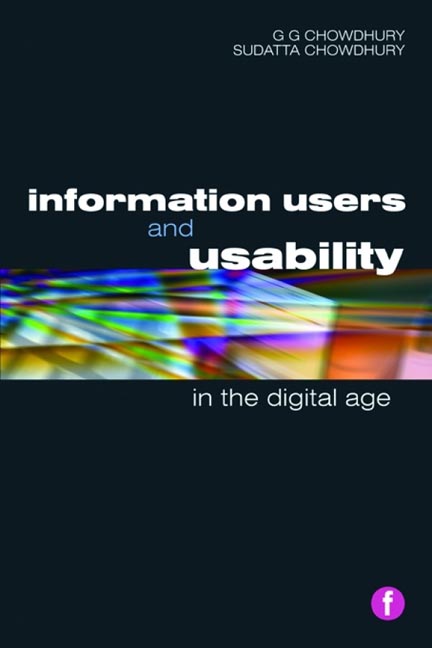Book contents
- Frontmatter
- Contents
- Preface
- Figures and tables
- 1 Introduction
- 2 Information needs and user studies
- 3 Human information behaviour studies and models
- 4 Usability study basics
- 5 Usability study participants
- 6 Usability data analysis
- 7 Web usability
- 8 The usability of digital libraries
- 9 The digital divide, digital natives and usability
- 10 Issues and trends in usability research
- Index
7 - Web usability
Published online by Cambridge University Press: 09 June 2018
- Frontmatter
- Contents
- Preface
- Figures and tables
- 1 Introduction
- 2 Information needs and user studies
- 3 Human information behaviour studies and models
- 4 Usability study basics
- 5 Usability study participants
- 6 Usability data analysis
- 7 Web usability
- 8 The usability of digital libraries
- 9 The digital divide, digital natives and usability
- 10 Issues and trends in usability research
- Index
Summary
Introduction
The web has brought a major revolution in the way we create, disseminate, access and use information. It has opened new opportunities for creators and users of information products and services because through the web any information product or service can virtually reach every user on the planet. There are challenges, too, because since users are remote, and sometimes unknown, it is often difficult to design an information product or service that would meet the requirements of every potential user. Yet every information product or service developer dreams to use the web to make their products or services available to users, however large or small the user groups are and whether they live next door or thousands of miles apart. All organizations – whether a government organization, an international organization like the United Nations, a city council, a university, a business, a professional organization or a charity – now use the web to make their information products and services available to potential consumers. Some of these information products and services are free, others require consumers to register and pay.
In order to remain competitive on the market, or to constantly improve the quality of their information products or services, organizations need to conduct usability studies. Although it is possible through the web to reach a large number of consumers with an information product or service, a poorly designed website, product or service can easily frustrate and alienate consumers thereby causing a loss of business for the organization. Usability specialists are often employed at every stage of the design of an information product or service, and regular usability studies are conducted once a product or service is on the market in order to detect problems, improve quality and stay competitive. Conducting such usability studies is often challenging, but fortunately a number of guidelines and tools are available for the purpose. This chapter discusses some of the tools and techniques that can be used to conduct usability studies of web‑based information services.
- Type
- Chapter
- Information
- Information Users and Usability in the Digital Age , pp. 141 - 152Publisher: FacetPrint publication year: 2011



